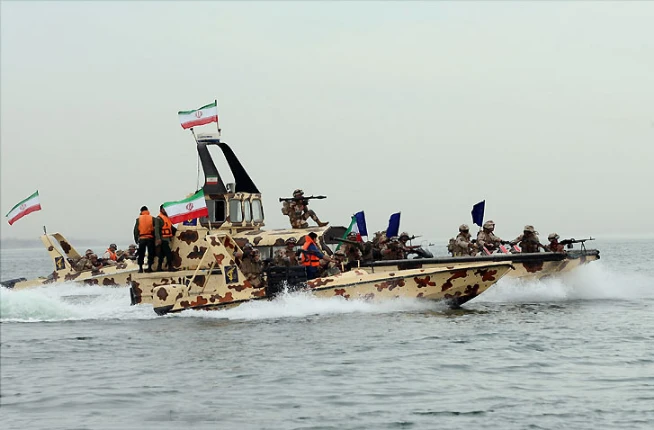Iran has threatened an “obliterating war” if Israel launches a full-scale attack against Hezbollah in Lebanon, as diplomats work to prevent tensions from escalating into an all-out conflict.
According to U.S. intelligence, a large-scale war between Israel and Hezbollah is likely to break out in the next several weeks if the Israeli government and Hamas fail to reach a cease-fire deal in Gaza.
In a post on X late Friday, Iran’s mission to the United Nations said that “all options,” including the involvement of Iran-backed armed groups across the Middle East, “are on the table.” Chief among those groups is Hezbollah, a powerful terrorist organization that dominates southern Lebanon.
At the same time, Iran dismissed warnings from Israeli officials that Israel could invade Lebanon as “psychological warfare.”
As Israel continues its war against Hamas in Gaza, it has also been engaged in tit-for-tat skirmishes with Hezbollah fighters on its northern border with Lebanon as well as targeting terrorists and buildings in Hezbollah strongholds throughout Lebanon.
According to data collected by the Armed Conflict Location and Event Data Project (ACLED) and reported by Al Jazeera, there have been some 7,400 cross-border attacks between Israel and Lebanon since Oct. 7.
Fears are growing that those strikes could escalate into a full-scale war with a much different dynamic than the war in Gaza.
Iran’s April 14 missile and drone attack on Israel, its first ever direct attack on the Jewish state from Iranian soil, signaled a major change in the dynamics of the war between Israel and Iran.
That attack was said by Iran to have been in retaliation for Israel’s attack on the Iranian consulate building in Syria’s capital, Damascus, assassinating several people including Brig-Gen Mohammad Reza Zahedi, a senior commander of the elite Quds Force, and his deputy Brig-Gen Mohammad Hadi Haji-Rahimi.
Having now demonstrated it will, without hesitation, attack Israel without fear, Iran has moved the goalposts and upped the ante in its war with Israel. Until then, Iran has used its proxies – Hamas in Gaza, Hezbollah in Lebanon, and the Houthis in Yemen – to attack Israel.
Today, we are looking at an entirely different equation, but now it is much more serious.
Iran’s threat of an obliterating war if Israel attacks Hezbollah in Lebanon carries extra weight since it could involve nuclear or similarly destructive weaponry.
Israel has long feared a nuclear Iran and has spent much time and energy over the last decade at least in preventing Iran from achieving nuclear capability. Those efforts have yet to bear fruit, however, as Iran recently announced it is enriching uranium. International Atomic Energy Agency (IAEA) head Rafael Grossi has also suggested that Iran is getting closer to a nuclear bomb.
Grossi said the IAEA has lost “a lot of visibility on very strategic activities,” with regards to Iran’s nuclear program.
Iran is now threatening to retaliate against Israel if it launches a war against Hezbollah. After April 14, Israel now understands Iran’s threats are real.
“All options, including the full involvement of all Resistance Fronts, are on the table,” the Iranian officials said, referring to the alliance of armed groups backed by Iran, including Hezbollah, Hamas, the Palestinian Islamic Jihad, Yemen’s Houthis and Iraqi Shiite militias.
The threats from Iran come after former Israeli war cabinet member Benny Gantz declared on Tuesday: “We can plunge Lebanon completely into the dark and take apart Hezbollah’s power in days.”
Israeli Defense Minister Yoav Gallant on Thursday warned that the Israel Defense Forces (IDF) are capable of bringing Lebanon “back to the Stone Age.” But “we don’t want to get into a war because it’s not good for Israel,” he added during a visit to Washington.
The escalating tensions on the Israeli-Lebanese border prompted Germany, the Netherlands and Canada this week to urge their citizens to leave Lebanon as soon as possible.
The U.S. has yet to do so.
Adding to the growing drumbeat of war, Israeli Prime Minister Benjamin Netanyahu said last week that the “intense phase of the war with Hamas is about to end,” but also that the IDF’s focus may shift to Israel’s northern border with Lebanon.
Indeed, the world should be prepared for a major war between Israel and Hezbollah in Lebanon. Iran’s direct involvement will certainly escalate the war to an entirely different level, threatening everyone in the region.
